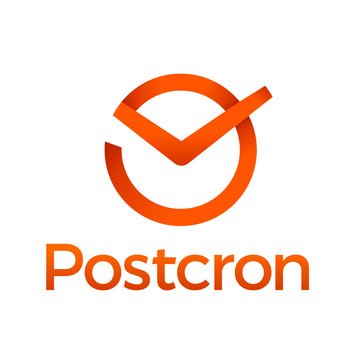In the bustling world of social media, where the roar of tweets, posts, and updates never ceases, finding the right tool to manage your online presence can feel like searching for a needle in a digital haystack. Enter CoSchedule and Postcron, two of the stalwarts in the realm of social media management tools, each promising to be the ace up your sleeve in the ever-evolving game of digital marketing. But which one is truly the best fit for your unique needs? Let’s dive into the intricacies of each platform, dissecting their features, usability, and value, to help you make an informed decision.
| CoSchedule | Postcron |
|---|---|
 |  |
| G2 Score – 4.4 out of 5 | G2 Score – 4.4 out of 5 |
| TrustRadius Score – 8.3 out of 10 | TrustRadius Score – Nil |
User Interface and Ease of Use
In the digital age, where time is as precious as online engagement, the usability of a social media management tool is not just a feature—it’s a necessity. The right tool should feel like an extension of your digital limbs, intuitive, responsive, and, above all, easy to navigate. Let’s see how CoSchedule and Postcron stand up to the test of user-friendliness.
CoSchedule: A Seamless Symphony of Features
CoSchedule greets its users with a clean, visually appealing dashboard that simplifies the complex dance of social media scheduling. Its calendar view is a masterpiece of organization, allowing you to see your entire social media strategy at a glance—past, present, and future. This bird’s-eye view is not just about aesthetics; it’s incredibly functional, making the process of planning, scheduling, and revisiting your social media posts as simple as dragging and dropping.
But CoSchedule doesn’t stop at being pretty and practical. It’s designed with the understanding that social media is just one part of a broader marketing strategy. Hence, it integrates seamlessly with blogs, email campaigns, and other marketing projects, making it a one-stop-shop for all your marketing needs. This holistic approach is a boon for marketers looking to keep their strategies tight and cohesive without juggling multiple tools.
Postcron: The No-Frills, Efficiency Expert
Postcron, on the other hand, takes a more minimalist approach. Its interface is straightforward, with no unnecessary frills, focusing purely on getting your content scheduled and out there. For those who find beauty in simplicity and efficiency, Postcron is a breath of fresh air. It offers a straightforward process for scheduling posts across various platforms, including some less common ones, which can be a significant advantage for businesses targeting a niche audience.
One of Postcron’s standout features is its bulk scheduling capability, which allows you to upload and schedule hundreds of posts at once using a simple spreadsheet. This feature is a game-changer for marketers with content-heavy strategies, saving hours of manual scheduling. While it may not offer the same level of integration as CoSchedule, Postcron holds its ground with its core offering—making social media management as efficient as possible.
The Verdict on Usability
Choosing between CoSchedule and Postcron on the basis of usability boils down to what you value more: the comprehensive, integrated approach of CoSchedule, which caters to a broader marketing strategy, or the streamlined, efficiency-focused interface of Postcron, designed with the sole purpose of simplifying social media scheduling.
If you’re a marketer who thrives on detail, appreciates the ability to see and manage all aspects of your marketing in one place, and doesn’t mind a bit of a learning curve, CoSchedule is your ally. However, if you prioritize speed, simplicity, and the ability to schedule vast amounts of content with minimal fuss, Postcron will not disappoint.
Pricing and Affordability
When it comes to choosing the right social media management tool, the cost is often a deal-breaker. Whether you’re a small business owner, a solo entrepreneur, or part of a large marketing team, finding a tool that offers the best bang for your buck is essential. Let’s compare CoSchedule and Postcron on their pricing structures, what you get for your investment, and overall value for money.
| CoSchedule | Marketing Calendar: The free version offers a basic marketing calendar for planning and scheduling.Marketing Suite: Custom pricing based on the needs of your team or organization, including content marketing, social media scheduling, work management, and more. |
| Postcron | Basic Plan: Starting at around $8 per month (when billed annually), suitable for individuals managing a small number of accounts. Professional Plan: Typically around $29 per month (billed annually), offering more accounts and posts. Business Plan: Priced around $79 per month (billed annually), designed for businesses needing to manage numerous accounts with higher post volumes. Agency Plan: Around $219 per month (billed annually), providing extensive support for agencies with many accounts and the need for bulk posting. |
CoSchedule: Investment in a Comprehensive Solution
CoSchedule’s pricing model reflects its position as a comprehensive marketing suite rather than just a social media tool. It offers several plans, each designed to cater to different sizes of businesses and marketing needs. The entry-level plan provides access to the essential features, making it suitable for individuals or small teams just getting started with organized social media and content marketing.
As you move up the tiers, CoSchedule introduces more sophisticated features, including advanced analytics, team collaboration tools, and increased integration capabilities. These higher-tier plans are targeted at larger businesses or agencies that require a more robust marketing solution. While the cost can climb with these advanced features, the value is evident for teams that will utilize the full spectrum of what CoSchedule offers, integrating social media with broader marketing campaigns.
One thing to note about CoSchedule is the transparency in its pricing. Each plan’s features and limits are clearly outlined, helping you choose the right level for your needs without fear of hidden costs. Additionally, CoSchedule offers a free trial, allowing you to test-drive its features before making a financial commitment.
Postcron: Affordable Efficiency
Postcron positions itself as an efficient and affordable solution for social media scheduling, with a pricing model that appeals to a wide range of users, from freelancers to small and medium-sized businesses. Its plans are straightforward, with the primary differentiator being the number of accounts and posts you can manage. Even at its most basic level, Postcron offers a robust set of features, making it an attractive option for those who need to manage multiple social media accounts without breaking the bank.
For users with more demanding needs, such as larger businesses or social media agencies, Postcron’s higher-tier plans increase the limits on accounts and posts and introduce additional features like bulk uploading and more detailed analytics. What makes Postcron stand out in terms of affordability is its commitment to offering core functionalities without the hefty price tag associated with more comprehensive marketing platforms.
Moreover, Postcron’s approach to pricing ensures that businesses of all sizes can find a plan that fits their budget while still leveraging the power of efficient social media management. The absence of a free trial is mitigated by its flexible subscription options, allowing users to switch plans or cancel without hassle.
Making the Right Investment
When deciding between CoSchedule and Postcron based on pricing and affordability, consider the scope of your marketing efforts and the specific features you need. CoSchedule is undoubtedly the pricier option, but it justifies its cost with a suite of comprehensive marketing tools that go beyond social media scheduling. It’s an investment in a broader strategy that could pay dividends for businesses with complex marketing needs.
Postcron, with its focus on affordability and efficiency, is ideal for users who want a straightforward tool for managing multiple social media accounts. Its pricing structure makes it accessible to a broader audience, offering essential features without a significant financial commitment.
In the end, the choice between CoSchedule and Postcron on pricing will hinge on your marketing budget, the complexity of your needs, and the value you place on integration versus specialization.
Analytics and Reporting
The depth, accessibility, and usability of analytics and reporting features can significantly influence the effectiveness of your social media strategy. These features not only help you track your performance but also provide insights into how you can improve your engagements and optimize your content.
CoSchedule: Data-Driven Insights for Strategic Growth
CoSchedule understands the importance of analytics in crafting a successful marketing strategy. It offers comprehensive analytics features that allow you to track the performance of your content across different platforms from a single dashboard. This integrated approach ensures you can easily monitor your social media efforts in the context of your broader marketing campaigns.
With CoSchedule, you can dive deep into the performance metrics of each post, campaign, and social channel, including engagement rates, best posting times, and audience demographics. These insights are crucial for understanding what resonates with your audience and why. Furthermore, CoSchedule’s analytics go beyond just social media, enabling you to see how your social strategy aligns with other marketing activities, such as email campaigns and blog posts.
Another advantage of CoSchedule is its ability to generate customizable reports. This feature is incredibly useful for marketing teams that need to report back to stakeholders or clients, as it allows for the creation of reports that highlight the most relevant metrics in a clear and visually appealing manner.
Postcron: Simplified Analytics for Immediate Improvements
Postcron focuses on providing straightforward and actionable analytics that cater to businesses and marketers looking to streamline their social media management. While it might not offer the same breadth of data as CoSchedule, Postcron delivers essential metrics that can help you understand your social media performance at a glance.
With Postcron, you can easily track post engagements, follower growth, and the overall reach of your content. These metrics are presented in a user-friendly interface, making it simple for users to identify trends and areas for improvement. Postcron’s analytics are designed to be immediately actionable, providing clear insights that can inform your future content strategy.
While Postcron’s analytics may appeal more to users who prioritize simplicity and ease of use, it still offers enough depth for most small to medium-sized businesses to effectively manage and optimize their social media presence.
Deciding on Analytics and Reporting
The choice between CoSchedule and Postcron in terms of analytics and reporting will largely depend on your specific needs for data analysis and the complexity of your social media strategy. If you require detailed insights that integrate with your overall marketing strategy and the flexibility to customize reports for different stakeholders, CoSchedule’s comprehensive analytics features make it the better choice. Its ability to provide a holistic view of your marketing efforts can be invaluable for teams focused on strategic growth and alignment across multiple channels.
On the other hand, if your focus is primarily on managing and optimizing your social media content with immediate, easy-to-understand analytics, Postcron offers a more streamlined approach. Its simplified analytics are ideal for users who need quick insights to adjust their strategy on the fly without getting bogged down in overly complex data.
Analytics and reporting are crucial for refining your social media strategy and achieving better engagement over time. Whether you need comprehensive, integrated insights or straightforward, actionable data, choosing the right tool will depend on the complexity of your marketing efforts and how you prefer to interact with analytics.

Related: Check out our free SEO suite

Content Creation and Collaboration
Efficient content creation and seamless collaboration among team members can dramatically improve the quality and consistency of your social media content. Let’s see what CoSchedule and Postcron have to offer in this domain.
CoSchedule: Enhancing Team Productivity and Creativity
CoSchedule excels in facilitating a collaborative content creation process, thanks to its comprehensive suite of tools designed for teamwork. With its centralized calendar, team members can easily plan, create, review, and approve content collaboratively. This unified approach ensures that everyone is on the same page, reducing the chances of miscommunication and overlapping tasks.
One of the standout features of CoSchedule is its integrated content editor and workflow management system. These tools allow teams to draft, edit, and finalize content directly within the platform, streamlining the entire content creation process. Additionally, with task assignments and progress tracking, team leaders can efficiently manage workflows and deadlines, ensuring that content is produced and published on schedule.
CoSchedule also supports integration with popular tools such as Google Docs and WordPress, allowing for a seamless transition of content from creation to publication. This interoperability is particularly beneficial for teams that rely on a variety of tools for content development and require a centralized platform to bring it all together.
Postcron: Streamlining Content Scheduling and Publishing
While Postcron may not offer the same breadth of collaboration features as CoSchedule, it provides a streamlined solution for content scheduling and publishing. Its user-friendly interface allows for quick and easy scheduling of posts across multiple social media platforms, making it an efficient tool for teams focused on maintaining a consistent online presence.
Postcron’s standout feature is its bulk uploading capability, which allows teams to schedule large volumes of content in advance, saving valuable time and effort. This feature is especially useful for businesses that operate on a content-heavy strategy or manage multiple accounts and need to ensure a steady stream of posts.
Although Postcron focuses more on the scheduling aspect of content management, it still facilitates a degree of collaboration. Team members can work together to create and upload content schedules, ensuring that the social media strategy is cohesive and aligned with the brand’s goals. However, it’s worth noting that Postcron’s collaborative features are more limited compared to CoSchedule, focusing primarily on the efficiency of content scheduling and publishing.
Making the Right Choice for Content Creation and Collaboration
The decision between CoSchedule and Postcron in terms of content creation and collaboration will largely depend on the needs and workflows of your team. If you’re looking for a platform that offers comprehensive tools for collaborative content creation, detailed planning, and workflow management, CoSchedule is the clear choice. Its suite of features designed to enhance team productivity makes it ideal for businesses that prioritize collaborative content development and require a high degree of coordination.
On the other hand, if your primary need is for a streamlined, efficient tool for scheduling and publishing content across multiple platforms, Postcron might be more up your alley. Its focus on simplifying the scheduling process, combined with the bulk uploading feature, makes it a practical choice for teams that need to manage a large volume of content but may not require extensive collaboration features.
Both CoSchedule and Postcron offer valuable features for content creation and collaboration, each catering to different aspects of social media management. Choosing the right tool will depend on your team’s specific needs, whether it’s comprehensive collaboration or efficient scheduling and publishing.
Integration Capabilities
The range and effectiveness of integrations can significantly impact the efficiency of your social media management, affecting everything from content creation to analytics and reporting.
CoSchedule: A Hub for Marketing Integrations
CoSchedule stands out for its extensive integration capabilities, positioning itself as a central hub for your marketing ecosystem. It integrates with a wide variety of tools, including content management systems (like WordPress), email marketing platforms (such as MailChimp), project management tools (like Asana and Trello), and more. These integrations are designed to streamline your marketing workflows, allowing for a more seamless transition between different stages of content planning, creation, and distribution.
One of the key benefits of CoSchedule’s integrations is the ability to automate various marketing tasks, thereby saving time and reducing the potential for human error. For example, integrating CoSchedule with your CMS allows you to directly push blog posts from your content calendar, ensuring that your publishing schedule is perfectly synchronized with your social media strategy.
Moreover, CoSchedule’s integration with analytics tools like Google Analytics enables you to track the performance of your marketing campaigns directly within the platform, providing valuable insights that can inform future strategies. This level of integration supports a data-driven approach to marketing, making CoSchedule an attractive option for businesses that rely on a diverse set of tools and platforms.
Postcron: Focused on Social Media Integrations
While Postcron might not offer the broad range of integrations found in CoSchedule, it excels in providing deep integration with social media platforms. This focus ensures that users can efficiently manage their social media presence across multiple channels, including Facebook, Twitter, Instagram, LinkedIn, and Pinterest, among others.
Postcron’s integrations are specifically designed to enhance the social media scheduling experience, offering features such as auto-posting and the ability to schedule posts directly to Instagram without the need for a mobile app. This level of seamless integration with social media platforms is particularly beneficial for businesses and marketers whose primary focus is on maximizing their social media engagement.
Although Postcron’s integration capabilities are more narrowly focused compared to CoSchedule, they are highly effective for the tool’s intended purpose. Users looking for a straightforward, efficient way to manage their social media channels may find that Postcron’s targeted integrations perfectly meet their needs.
Choosing the Right Tool Based on Integration Capabilities
The decision between CoSchedule and Postcron in terms of integration capabilities will largely depend on the complexity of your marketing ecosystem and where social media fits within your overall strategy.
If your marketing efforts are extensive, involving a variety of platforms and tools, CoSchedule’s wide array of integrations offers a compelling advantage. Its ability to serve as a central hub for your marketing activities can significantly streamline workflows and enhance efficiency.
Conversely, if your primary focus is on social media management and you value deep integration with social media platforms for straightforward scheduling and posting, Postcron’s focused approach may be more appealing. Its specialized integrations are tailored to optimize the social media management process, making it a strong choice for those dedicated to enhancing their social media presence.
Both CoSchedule and Postcron offer valuable integration capabilities, each tailored to different aspects of digital marketing. Your choice between them should be guided by the specific needs of your marketing strategy and the tools you rely on to implement it.
Customer Support and Community Engagement
Effective customer support ensures that any technical issues or questions you encounter can be swiftly resolved, allowing you to maintain a seamless social media management process. Additionally, an active and supportive user community can be a valuable resource for sharing tips, best practices, and creative ideas.
CoSchedule: Comprehensive Support and an Engaged Community
CoSchedule is known for its robust customer support system, offering multiple channels through which users can seek assistance, including email, chat, and a detailed knowledge base. This multi-faceted approach ensures that users can find help in a way that suits them best, whether they prefer to solve issues independently through self-service resources or seek direct assistance from the support team.
Beyond its support system, CoSchedule has cultivated a strong and active user community. The platform encourages engagement through various means, including webinars, training sessions, and a community forum where users can connect, ask questions, and share insights. This community aspect is not only beneficial for problem-solving but also serves as a source of inspiration and networking opportunities for marketers and content creators.
Furthermore, CoSchedule regularly updates its blog and resources section with valuable content on marketing best practices, strategy tips, and platform updates, reinforcing its commitment to supporting users beyond just technical issues.
Postcron: Focused Support and Practical Resources
Postcron provides a streamlined customer support experience, with a focus on getting users the help they need quickly and efficiently. Support is primarily offered through email, with a promise of timely responses to user inquiries. While the support channels may be more limited compared to CoSchedule, Postcron ensures that users have access to effective assistance when needed.
In terms of community engagement, Postcron takes a more practical approach, offering a range of tutorials, guides, and articles designed to help users maximize their use of the platform. While there may not be a formal community forum like CoSchedule, Postcron maintains an active presence on social media, where users can interact with the brand and potentially connect with other users.
Postcron’s resource library, though not as extensive as CoSchedule’s, is focused and practical, offering straightforward guidance on how to use the platform effectively and improve social media management practices.
Evaluating Customer Support and Community Engagement
The choice between CoSchedule and Postcron in terms of customer support and community engagement depends on what level of support you anticipate needing and how much value you place on being part of an active user community.
If comprehensive support options and the ability to engage with a community of like-minded professionals are important to you, CoSchedule’s extensive support system and active community engagement initiatives make it an appealing choice. The platform’s commitment to fostering a supportive environment can enhance your overall experience and provide additional learning opportunities.
On the other hand, if your focus is on straightforward, effective support with less emphasis on community engagement, Postcron’s focused and efficient support system may meet your needs. Its practical resources and active social media presence can still provide valuable support and insights, even without a formal community forum.
Ultimately, both CoSchedule and Postcron recognize the importance of supporting their users, albeit through different approaches. Your preference will likely depend on the level of support you require and the extent to which you wish to engage with a broader community of users.
Conclusion
Choosing between CoSchedule and Postcron boils down to your specific needs in social media management. CoSchedule shines as a comprehensive marketing hub, offering robust integration capabilities, extensive support, and a vibrant community for users seeking an all-in-one solution to synchronize their marketing efforts. Its appeal lies in its ability to manage and analyze across multiple channels, making it ideal for teams or businesses with a broad marketing scope.
On the other hand, Postcron stands out for its efficiency and straightforwardness, particularly suited for those focused primarily on social media. It offers practical, user-friendly scheduling tools and focused support, making it a strong contender for users prioritizing simplicity and direct social media management. Ultimately, your choice should align with your marketing strategy’s complexity, the value you place on community engagement, and your preference for comprehensive versus focused tools. Both platforms offer unique strengths—CoSchedule with its wide-ranging capabilities and Postcron with its streamlined approach to social media scheduling.
Read Next:
- SEO Strategies for Cruise Operators
- SEO for Adventure Travel Companies
- Cultural Sensitivities and International SEO
- How to Optimize for Different Travel Seasons Globally
- Currency and Language Switchers: SEO Best Practices






















Comments are closed.